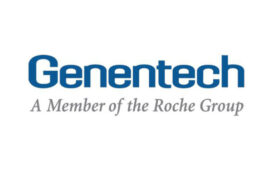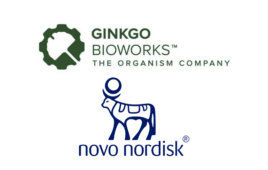
A unique non-profit and private partnership using a datathon and an AI-powered technology platform has identified new repurposable drug candidates to treat a painful chronic disease affecting about a million people globally and for which there is no current treatment.
Elsevier, the information analytics business specializing in science and health, and The Pistoia Alliance, a global, non-profit alliance working to lower barriers to innovation in life sciences, have announced the results of a joint datathon for Drug Repurposing for Rare Diseases. The datathon, conducted in partnership with non-profit groups, Cures Within Reach and Mission: Cure, involved participants from a range of organizations including life sciences, technology and academia, and has succeeded in identifying new drug candidates for repurposing to treat chronic pancreatitis.
The drug candidates below have passed the expert review panel and are being actively considered by Mission: Cure, with a view to proceeding to patient trials:
- Lacosamide to target Cathepsin B
- Dapsone to target the cystic fibrosis transmembrane conductance regulator
- Rolipram to target Tumor necrosis factor alpha (TNF-a)
- Prednisolone to target Tumor necrosis factor alpha (TNF-a)
“The results of the datathon show that by working in unison, we can achieve breakthroughs that will have a real impact on patients’ lives,” said Dr. Steve Arlington, President, The Pistoia Alliance. “In life sciences today, no one company has the resources to ‘go it alone.’ The datathon was the perfect opportunity to bring all the relevant experts together and pool our knowledge and resources. The results are very promising, and we look forward to seeing these therapies reach those in need.”
The datathon had participants apply AI, machine learning and statistical techniques, using Elsevier’s Entellect platform, to a real-world problem such as drug repurposing. Using Entellect with clinical, pharmaceutical and biochemical data, participants were able to identify suitable drugs to be repositioned to treat chronic pancreatitis. This involved the use of multiple techniques, including target-based drug discovery, examining the perturbance of a drug on a specific gene known to be disease-modifying, and symptomatic-based drug discovery (i.e., examining the perturbance of a drug on the body). Entellect was specifically developed to tackle real-world life science challenges such as this—with the positive results from the datathon validating the need for such purpose-built tech solutions.
“We are very excited about the discoveries made in the Elsevier Entellect/Pistoia Alliance datathon. The problem-solving and teamwork focused on chronic pancreatitis was very exciting. We look forward to taking the promising candidates to the next step where we hope they will help us find effective treatments for this difficult, rare disease,” said Megan Golden, co-founder and co-director, Mission: Cure.
“Within 30 to 60 days of starting the datathon, drug candidates with really good repurposing opportunities came out. In such a short space of time, a small group of people using AI were able to achieve incredible things by showing mechanism of action,” said Bruce Bloom, CEO, Cures Within Reach.
“The goal of the datathon was to identify drug candidates for repurposing by using predictive analytics techniques, and we also wanted to explore best practice in the use of data science,” said Dr. Jabe Wilson, Consulting Director, Text and Data Analytics, Elsevier. “This was the first public trial for our Entellect platform and it’s been a great success on all fronts. I want to thank all our partners and participants for their time and commitment to achieving this positive outcome.”
The project was sponsored by the top 20 pharma companies through The Pistoia Alliance, and all participants had access to a life science-specific AI environment through Elsevier’s Entellect platform; allowing them to seamlessly perform all steps of the machine learning pipeline. Each participant was able to use Entellect to go from exploratory data analysis and data preprocessing, to feature engineering, model building, validation and comparison, and finally result visualization and model deployment. In addition, participants had access to Elsevier datasets, such as Reaxys, PharmaPendium and Pathway Studio, as well as the ability to upload their own datasets into the environment to incorporate them into their analytics workflow. The full results of the datathon are set to be announced at The Pistoia Alliance ‘Centre of Excellence for AI/ML in Life Sciences’ workshop in London on March 12th.




